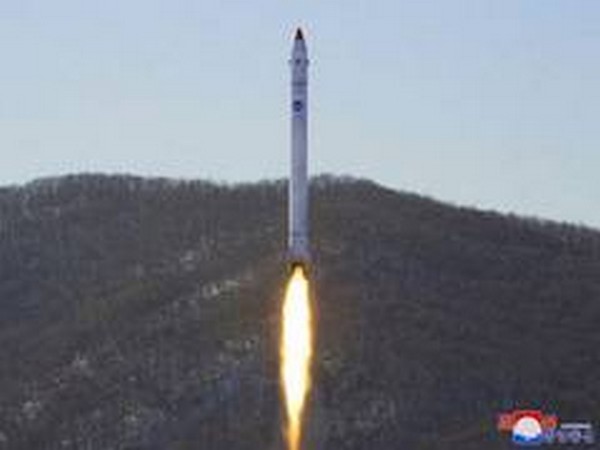North Korea's new missile move
Feb 21, 2023
Pyongyang [North Korea], January 21: In recent days, North Korea has repeatedly test-fired missiles, including intercontinental ballistic missiles capable of reaching the US mainland. What do international experts say about Pyongyang's intentions?
On February 20, North Korea's official Korean Central News Agency (KCNA) announced that it had conducted a missile test into the eastern seaboard of the Korean peninsula. The KCNA quoted senior North Korean official Kim Yo-jong, sister of leader Kim Jong-un, as saying, "How often we use the Pacific Ocean as a 'shooting range' depends on our behavior." of the US military".
Eat tit for tat
Regarding the test launch, according to the Japanese Ministry of Defense, North Korea launched two missiles at around 7 a.m. on the same day, February 20 (local time). In particular, the first missile flew about 400 km and reached an altitude of up to 100 km, the second missile flew about 350 km and reached the highest altitude of 50 km.
This move took place after the US and South Korea held joint air exercises on February 19. Reuters quoted a notice from South Korea's Joint Chiefs of Staff (JCS) saying that the drill involved South Korean F-35A and F-15K fighters and F-16 fighter jets escorting the bombers. American B-1B. The JCS emphasized that the exercise demonstrated the "overwhelming" defense capabilities and combat readiness of Washington and Seoul.
The drills are considered a response of these two allies when North Korea on February 18 launched an intercontinental ballistic missile (ICBM) believed to be a Hwasong-15 type capable of reaching Washington DC. The missile flew 989 km and reached a maximum altitude of 5,768 km. On the same day, February 18, Japan announced that the missile had landed in its exclusive economic zone (EEZ).
Answering ThanhNien on February 20, Dr. Satoru Nagao (Hudson Research Institute, USA) analyzed: "North Korea has test-fired an ICBM (KN-22 or Hwasong-15) - the type that can reach Washington DC, the US capital. Hwasong-15 is mounted on mobile vehicles, so it is easy to hide and suddenly launch missiles, but if still using liquid fuel, it takes a relatively long time to refuel the rocket."
"If North Korea has the ability to attack Washington DC with an ICBM, Japan and South Korea are concerned that the United States will hesitate to intervene when North Korea attacks South Korea or Japan. Although Pyongyang tests ICBMs, the Security Council is not The UN probably won't be able to impose stronger sanctions on North Korea because China and Russia veto that move," Dr Nagao said.
There may be more attempts
Also answering ThanhNien, Prof.Yoichiro Sato (international relations expert, Ritsumeikan Asia-Pacific University, Japan; Senior scholar of the YusofIshak Institute of Southeast Asian Studies, Singapore) commented: "The missile that North Korea launched on February 18 appears to have flown on a deviated trajectory. But the test demonstrated the improved capabilities of North Korea's intercontinental ballistic missiles. There is speculation that North Korea could introduced a new solid-fuel rocket that allows for a shorter launch preparation time, making the missile less prone to pre-emptive or counterattack."
"In addition, Pyongyang's heightened display of its ability to threaten and strike the continental United States is aimed at achieving a sufficiently strong and reliable deterrent against Washington's attacks and gaining political supremacy. bilateral diplomacy between Pyongyang and Seoul and Tokyo. North Korea has been testing new missiles with complex orbits that are more difficult to intercept," Prof. Sato assessed.
Professor Ryo Hinata-Yamaguchi (University of Tokyo, Japan) analyzed: "Although North Korea regularly launches missiles to threaten the defense capabilities of the US, Japan and South Korea, Pyongyang's real purpose is to to test the capabilities of missiles under development or during drills to improve the readiness of missile units, in particular, North Korea is accelerating a five-year plan to strengthen its military capabilities , should put more effort into developing and operating both new strategic and tactical arsenals".
Thereby, he forecast: "Thus, Pyongyang will conduct more missile tests and exercises this year and next year, especially with ICBMs."
Source: ThanhNien Newspaper








